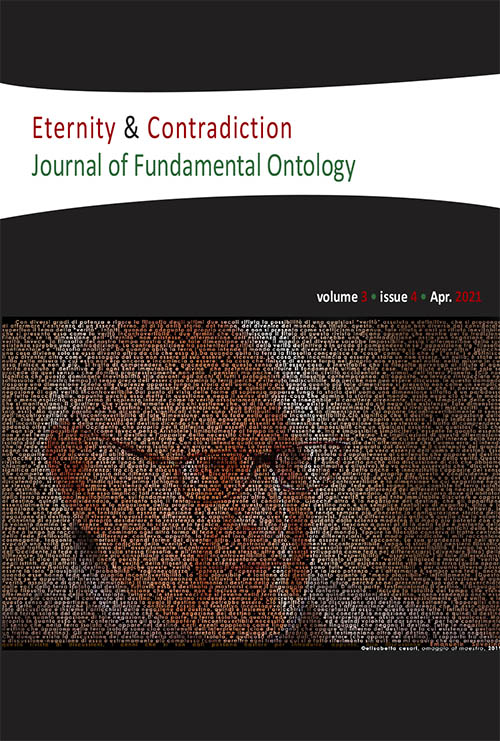The Nothingness of (the) Nothing
DOI:
https://doi.org/10.7346/e&c042021‐11Abstract
In recent years, in the analytic philosophical community various people have focused their attention again on (the) Nothing, in order to say that, pace Carnap (1932/1959) and pro Heidegger (1929/1977), there are occurrences of the corresponding phrase “(the) Nothing” in which it works as a singular term, not as a quantified expression (e.g. Casati‐Fujikawa 2015, 2019, Costantini 2020, Jacquette 2013, 2015, Oliver‐Smiley 2013, Priest 2014a,b, Simionato 2017, Voltolini 2015). First of all, I will stress again that, if those occurrences are referentially successful, as most of the previous people proposes, they denote an object that is paradoxical. For it is inconsistent because of its contradictory behavior with respect to a certain universal first‐order property, what I call the genuine existential property, i.e., Russell’s (1903) being. After reviewing and assessing such proposals, I will moreover try to show why the antecedent of the above conditional is false. In a nutshell, there cannot, even impossibly, be such a thing as (the) Nothing, not because this would make the overall totality of beings contradictory as well (by both including and not including (the) Nothing), but because (as Twardowski 1892/1977 somehow intuited) it would prevent that totality from being determined at all and (pace Costantini 2020) once for all. Finally, therefore, the only things that there legitimately are à propos of (the) Nothing are significant propositions, depending on the fact that the phrase “(the) Nothing” yields a contextually meaningful contribution to them qua Russellean definite description, even though it does not denote at all. Possibly, this position is similar to what Severino (1957, 2013) maintained on this subject.


